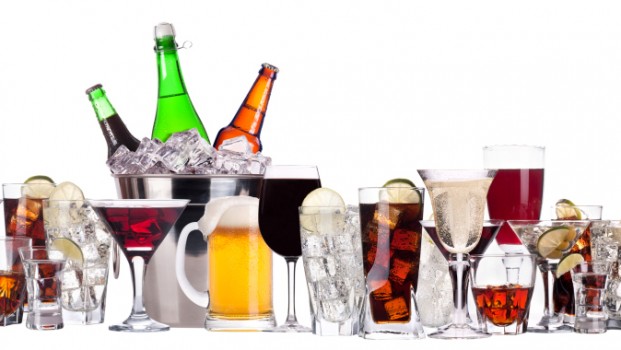Alcoholic beverages are drinks that contain ethanol, a type of alcohol. Ethanol is produced by the fermentation of sugars by yeast. Alcoholic beverages can be made from a variety of fruits, grains, and vegetables.
There are many different types of alcoholic beverages, each with its own unique flavor and alcohol content. Some of the most common types of alcoholic beverages include:
- Beer: Beer is a brewed beverage made from fermented cereals, typically malted barley and hops. Beer is one of the most popular alcoholic beverages in the world.
- Wine: Wine is an alcoholic beverage made from fermented grapes. Wine can be red, white, or rosé.
- Spirits: Spirits are distilled alcoholic beverages made from fermented grains, fruits, or vegetables. Spirits typically have a high alcohol content, ranging from 35% to 50%. Some of the most popular spirits include vodka, gin, whiskey, rum, and tequila.
- Liqueurs: Liqueurs are sweetened alcoholic beverages made from a variety of ingredients, including fruits, herbs, spices, and nuts. Liqueurs typically have a lower alcohol content than spirits, ranging from 15% to 30%.
Alcoholic beverages can be enjoyed in moderation as part of a healthy diet. However, it is important to drink responsibly and be aware of the risks associated with excessive alcohol consumption.
Here are some of the risks associated with excessive alcohol consumption:
- Alcohol poisoning: Alcohol poisoning is a life-threatening condition that can occur when someone drinks too much alcohol too quickly. Symptoms of alcohol poisoning include confusion, vomiting, seizures, and loss of consciousness.
- Cirrhosis: Cirrhosis is a serious liver disease that can be caused by excessive alcohol consumption. Cirrhosis can lead to liver failure and death.
- Cancer: Alcohol can increase the risk of developing certain types of cancer, including cancer of the mouth, throat, esophagus, liver, and breast.
- Heart disease: Excessive alcohol consumption can increase the risk of developing heart disease.
- Stroke: Excessive alcohol consumption can increase the risk of stroke.
If you are concerned about your alcohol consumption, talk to your doctor. They can help you develop a plan to reduce your alcohol intake and improve your overall health.
Here are some tips for drinking alcohol responsibly:
- Know your limits. Everyone has a different tolerance for alcohol. Start with a small amount and see how you feel.
- Pace yourself. Don’t drink too much too quickly. Allow your body to process the alcohol before you have another drink.
- Drink plenty of water. Alcohol dehydrates you, so it’s important to drink plenty of water throughout the night.
- Eat before you drink. Eating will help slow down the absorption of alcohol into your bloodstream.
- Don’t drink and drive. If you’ve been drinking, call a cab or have a designated driver.
By following these tips, you can help ensure that you have a safe and enjoyable night out.














